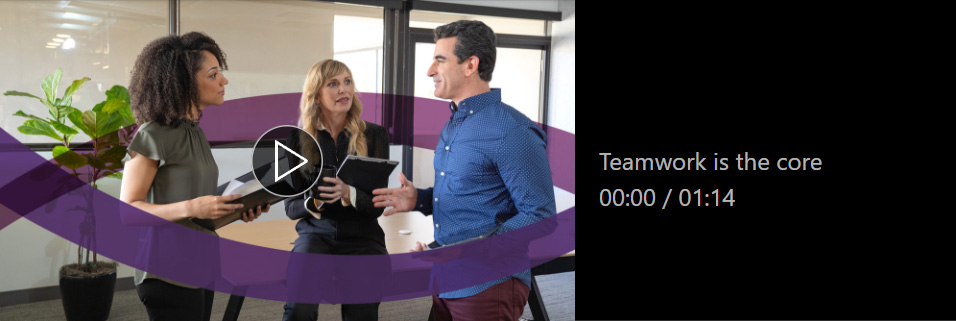Team workers
Discover the benefits of developing your team working skills.
Popular pages on the careers website
Effective teamwork
Effective teamwork involves collaborating with others to achieve shared goals. It encompasses communication, contribution, support, cooperation, and facilitation. Reflect on your role as a team member and how you enable the group's success. Teamwork relies on a lot of other skills and you are likely to be using it without necessarily knowing.
Reflect
- What strengths do you bring to a team?
- Can you show you work collaboratively towards a shared goal?
- How do you adapt when working with diverse people and teams?
- Do you make sure everyone feels respected, valued, and able to participate?
In the next section you will see how you can develop this skill.
Develop your skills
Check out these suggested activities to enhance your team working skills:
- Group projects or presentations you participate in during your studies.
- Serving on a Committee of for a society. , elected by its members.
- Work experience or placements where you collaborate with teams.
- Volunteering in any capacity that involves cooperation with others.
Take charge of your team working skills through these engaging activities!
Once you have started to consider how you can develop your skills, start to think about how you might be able to showcase them during your career journey.
Demonstrate your employability skills
You will be asked to provide evidence of your skills in job applications, CVs and interviews – articulating where, when, why and how successfully you have used your employability skills. Top tips:
- Start with noting down examples of your skills on our Employability Skills Checklist
- Keep this as a record to use when completing applications and preparing for interviews.
Reflect on your journey
- Identify the skills you're using in your studies.
- Record all your experiences (paid work, voluntary work, roles in clubs or societies, for example) using our Employability Skills Activity Sheet
- Maintain your skills audit for future reference.
- Pinpoint any challenging skills or qualities you are struggling to evidence.
- Take action to bridge any skills gap.
Check out our employability guide (perfect for new students) to unlock opportunities and more ideas to help you develop your employability skills.

How to best demonstrate your skills to employers
Be positive and relevant
- Give examples of the most relevant skills first from your job, internship or work experience
- Use confident language to describe your skills, for example, praise employers have given you.
- Better to focus on transferable skills than routine tasks on your CV, gained through part-time jobs.
Sell your skills in different ways
These are just a few examples:
- Social Media including a Linked-In Profile
- Networking opportunities
- CV, Covering Letters, Application Forms
- Interview and Assessment Centres
- Presentations
Think beyond common skills
Our Employability Skills are probably ones you are familiar with. But there are some you might not be familiar with, such as meta-skills. A meta-skill like a master skill – it's something that can help you in lots of different environments.
Think also about:
- Subject skills e.g. Software, use of Lab equipment or research methodology
- Talents and abilities e.g. Languages, drawing skills, athletic
- Personal qualities e.g. Calmness, tenacious, creative, supportive
Match skills to your employer
Research the employer – what is their company culture? Look on their website and see what their company beliefs are.
Look at the job description you have. You should be able to find some of the employability skills they are looking for.
Use the STAR technique to help you relate the employability skills into your answers and examples.
Resources
- Forge your own career path
- Why be Enterprising
- Psychometric Tests in Recruitment Processes
- Emotional Intelligence
- Writing a Reflective Log
Our experts have selected further Employability resources for you to use.
Speak to a Careers Adviser
Get guidance from our friendly team of Advisers.
Open to current students and Salford Alumni only.


